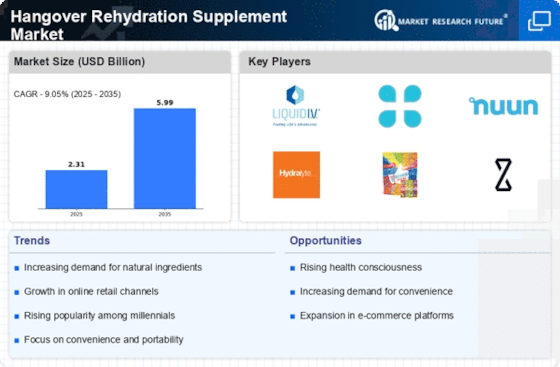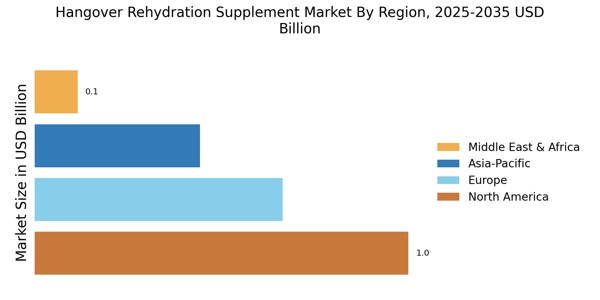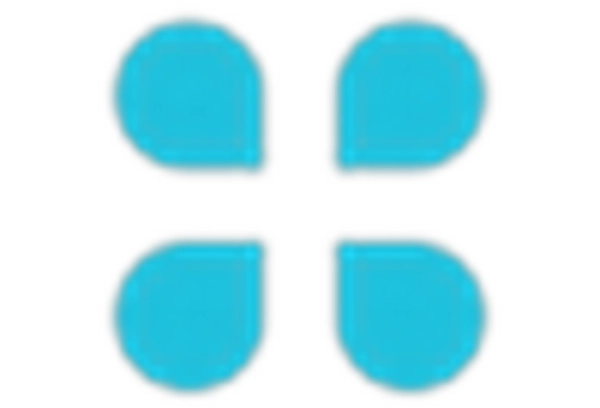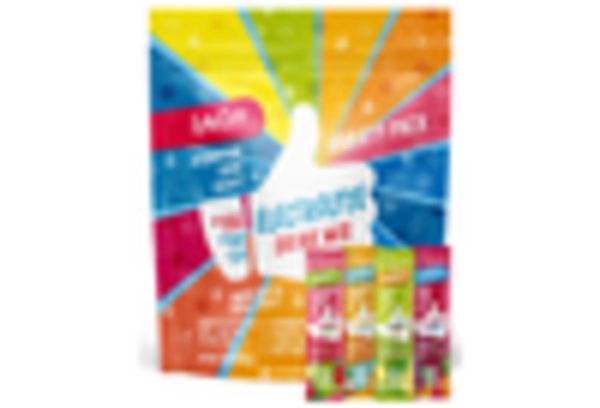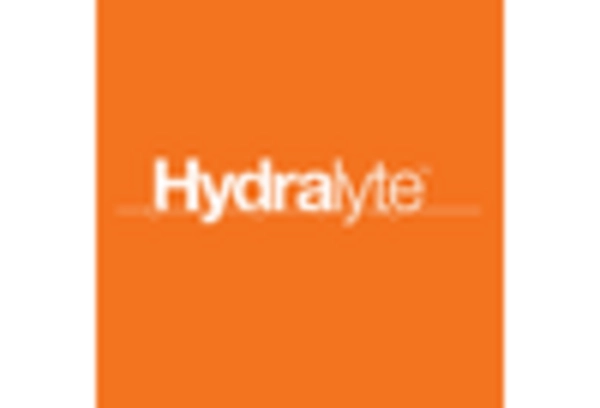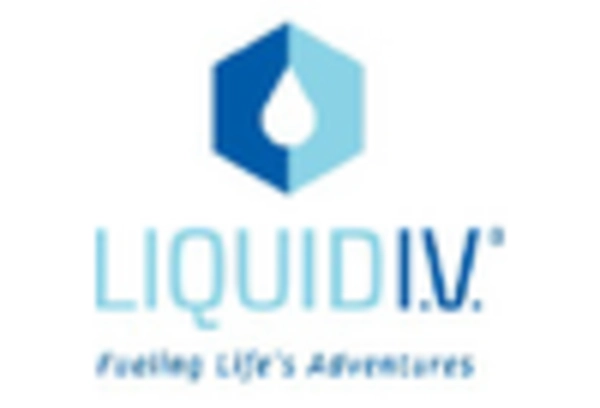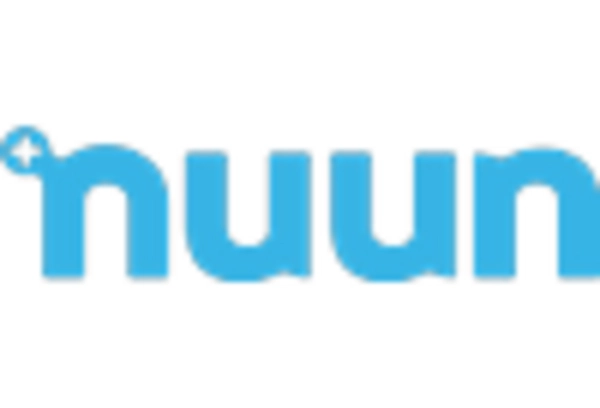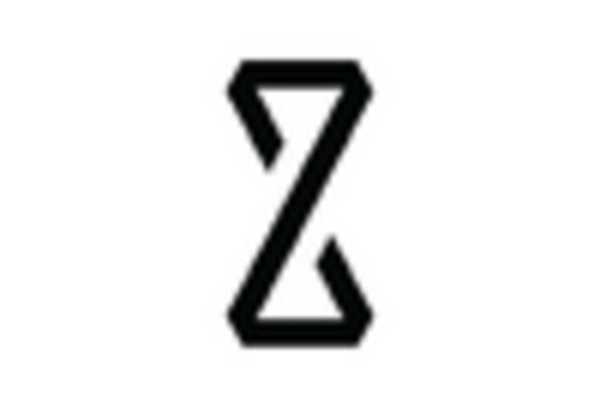Growing Health Consciousness
Health consciousness among consumers is a pivotal driver for the Hangover Rehydration Supplement Market. As individuals become more aware of the impact of alcohol on their health, there is a noticeable shift towards products that promote recovery and well-being. This trend is reflected in the increasing sales of supplements that contain vitamins, electrolytes, and natural ingredients aimed at rehydration. Market data suggests that the demand for health-oriented products has surged, with a notable increase in sales of hangover supplements by over 15% in the past year. This growing focus on health and wellness is likely to propel the Hangover Rehydration Supplement Market forward, as consumers actively seek out solutions that align with their lifestyle choices.
Innovative Product Development
Innovation in product development is a crucial driver for the Hangover Rehydration Supplement Market. Companies are increasingly focusing on creating unique formulations that combine traditional ingredients with modern science. This includes the incorporation of probiotics, herbal extracts, and electrolytes designed to enhance recovery. Market Research Future indicates that innovative products are gaining traction, with new launches accounting for nearly 30% of total sales in the past year. As consumers seek effective and novel solutions to combat hangovers, the demand for innovative supplements is expected to rise. This trend underscores the importance of research and development in the Hangover Rehydration Supplement Market, as brands strive to differentiate themselves in a competitive landscape.
Expansion of E-commerce Platforms
The rise of e-commerce platforms is transforming the Hangover Rehydration Supplement Market. With the convenience of online shopping, consumers are increasingly turning to digital channels to purchase health supplements. This shift is particularly evident among younger consumers who prefer the ease of ordering products online. Recent statistics indicate that e-commerce sales in the health supplement sector have grown by approximately 20% in the last year. This trend not only broadens the market reach for hangover rehydration products but also enhances consumer access to a variety of options. As e-commerce continues to expand, the Hangover Rehydration Supplement Market is likely to benefit from increased visibility and sales opportunities, catering to a tech-savvy consumer base.
Influence of Social Media Marketing
The impact of social media marketing on the Hangover Rehydration Supplement Market cannot be overlooked. Brands are leveraging platforms like Instagram and TikTok to reach a broader audience, particularly younger consumers who are highly engaged with social media. Influencer partnerships and targeted advertising campaigns have proven effective in promoting hangover supplements, leading to increased brand awareness and consumer interest. Recent data suggests that products endorsed by influencers see a sales increase of up to 25% compared to those that are not. As social media continues to shape consumer behavior, the Hangover Rehydration Supplement Market is likely to experience sustained growth driven by effective online marketing strategies.
Increasing Alcohol Consumption Trends
The Hangover Rehydration Supplement Market appears to be positively influenced by the rising trends in alcohol consumption. Recent data indicates that a significant portion of the adult population engages in regular drinking, particularly among millennials and Gen Z. This demographic shift suggests a growing need for effective solutions to mitigate hangover symptoms. As more individuals seek to enjoy social drinking without the adverse effects, the demand for rehydration supplements is likely to increase. Furthermore, the market is projected to grow at a compound annual growth rate of approximately 8% over the next five years, driven by this trend. The Hangover Rehydration Supplement Market is thus positioned to capitalize on the increasing awareness of health and wellness, as consumers become more proactive in managing their post-drinking experiences.


